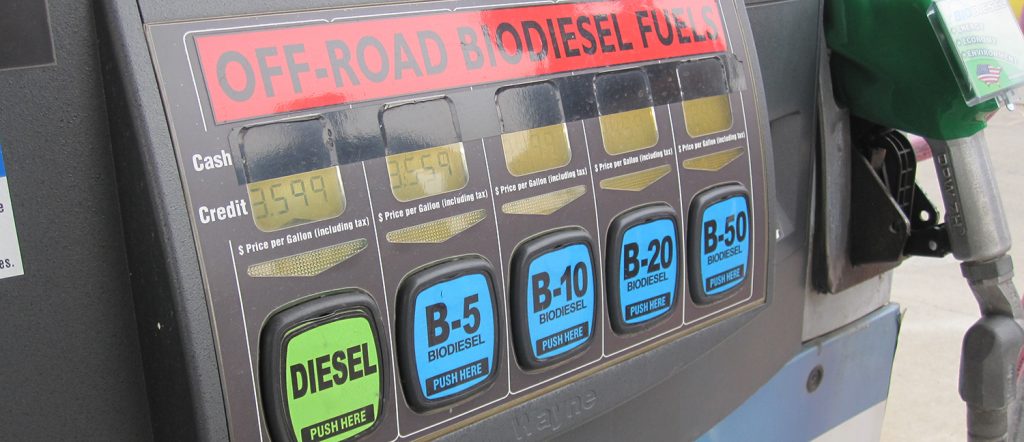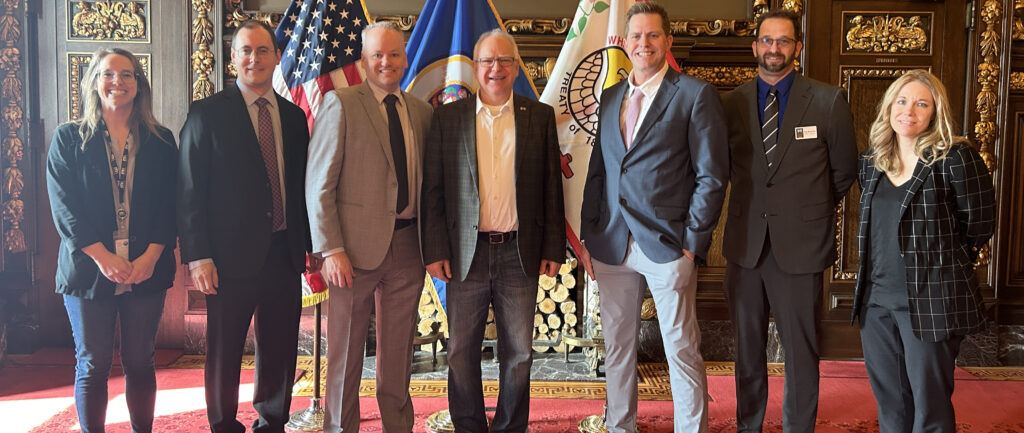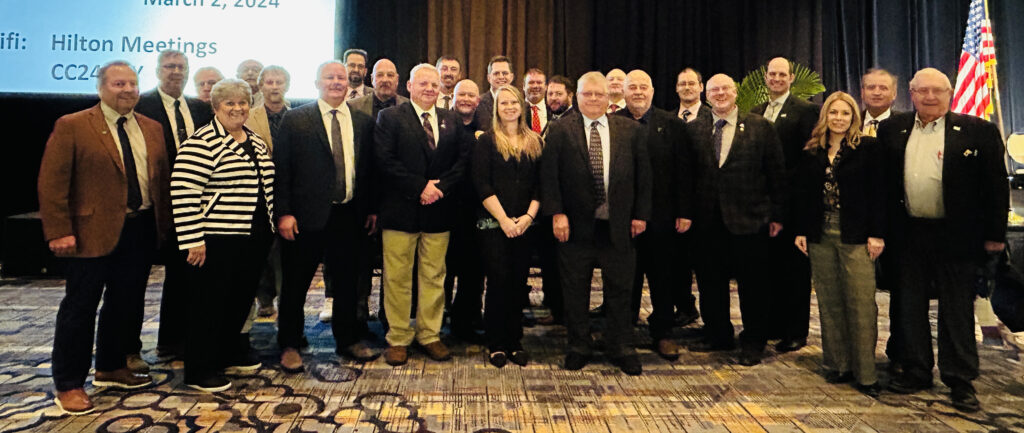Three Minnesota soybean farmers joined nearly 200 National Biodiesel Board (NBB) members in Washington, D.C. to take part in their semi-annual membership meeting and Hill Visits. Farmers, blenders and biodiesel producers from across the country heard updates on biodiesel and discussed industry priorities and concerns with congressional leaders and staff members on Capitol Hill.
“Biodiesel is in a unique place right now, it’s relying on Congress to keep this industry alive,” says Chris Hill, National Biodiesel Foundation Board (NBFB) member and Minnesota Soybean Growers Association (MSGA) director. “It is great for us to gather to hear updates on the industry, but even more important for us to make our voices heard on Capitol Hill.”
Recognized by the EPA as the first advanced biofuel in the industry, biodiesel supports nearly 60,000 jobs nationwide and more than 5,000 jobs in Minnesota alone, and contributes nearly $1.7 billion toward Minnesota’s economy. Biodiesel is also an environmental winner, reducing greenhouse gas emissions by more than 50 percent.
“Minnesota continues to be a leader in biodiesel nationwide,” Hill says. “In order for the biodiesel industry to continue the development of rural communities in Minnesota, we need Congress to act fast. This is really do or die time for the industry.”
Biodiesel advocates took to Capitol Hill to share the advancements and successes of the biodiesel industry while asking for their support on many legislative issues. Top issues include:
- Support for HR 2089 for an extension for the biodiesel tax credit;
- Support for HR 3006 to require the Environmental Protection Agency (EPA) to grant small refinery exemptions before setting the annual Renewable Fuel Standard (RFS) volumes;
- Urging the Trump administration to keep its promises to rural America and encourage the EPA to support the biofuels industry;
- Encourage colleges to use oversight authority to ensure the Department of Commerce conducts a fair review of Argentina’s biodiesel exports.
In total, Minnesota completed ten visits in both the House and Senate, visiting with every sitting senator and representative from Minnesota.
Freshman Rep. Angie Craig, who represents Minnesota’s Second Congressional District, has pushed legislation forward to benefit Minnesota farmers and the biodiesel industry.
“We are always looking for ways to be helpful and support the ag industry back home,” says Mikayala Bodey, Rep. Craig’s senior legislative assistant. “We were asked to share our priorities for year end and the biodiesel tax credit was number one on our list.”
Farmers also met with House of Representative Agriculture Committee Chairman Collin Peterson, who represents Minnesota’s Seventh Congressional District, one of the country’s most productive agriculture regions.

“The transparency argument is strong enough with the Small Refinery Exemptions (SRE) and that is something they don’t have right now,” says Zach Martin, Rep. Peterson’s energy legislative assistant. “There are a lot of people wants credits and we are not sure what will be in the bill. Ultimately, it’s the Ways and Means Committee that needs to act.”
Biodiesel was not the only topic of discussion. Farmers maximized their time on Capitol Hill to talk about the Untied State Mexico Canada Agreement (USMCA).
“USMCA would be a true win for agriculture right now,” says Ron Obermoller, a Brewster farmer. “The impact this will have on the industry is substantial. This would at least provide us a little bit of certainty and really would be a light at the end of the tunnel in the trade turmoil we’re experiencing.”
When looking at the industry as a whole, there is still uncertainty with any policy negotiations.
“We hear you and Senator Smith is behind you,” says Pete Wyckoff, energy and environmental policy advisor Sen. Tina Smith. “It is the EPA of this administration slowing down bills for tax credits and USMCA. I am not sure people have grasped what this administration has done to rural America right now.”
As members wrapped up their time in D.C., farmers learned about the outlook of the biodiesel industry.
“There is a future and a market for biodiesel across the United States,” says Luverne farmer Jim Willers. “Biodiesel is a sustainable fuel that provides a market for Minnesota’s soybean farmers and lowers carbon across the country. It really is a win for everyone and has a bright future if things come together.”





